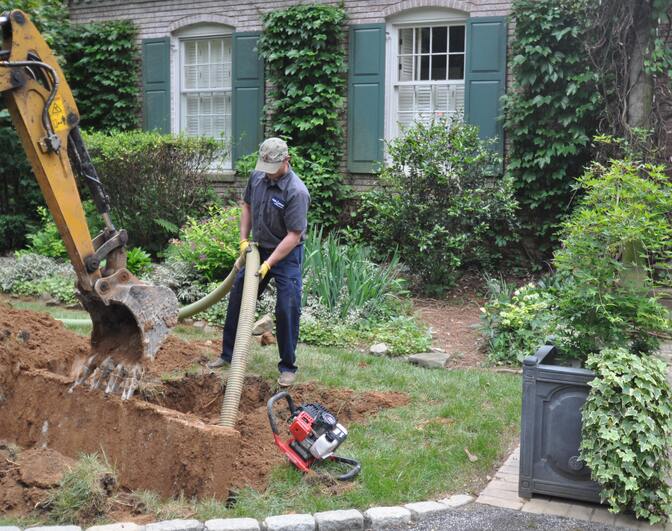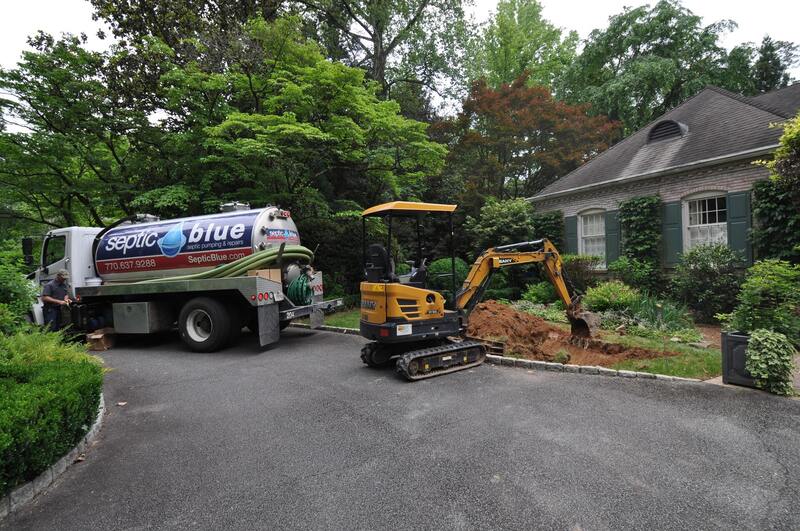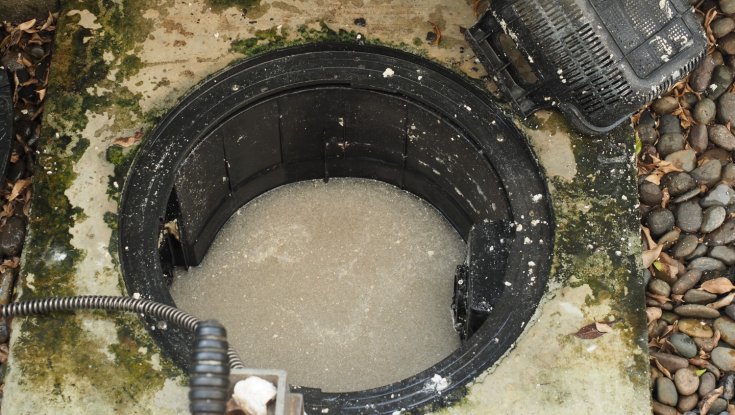Free Septic System Inspection ($99 VALUE)
WE DO NOT ONLY PUMP YOUR TANK - WE CLEAN IT! Free Septic System Inspection($99 VALUE) Free enzyme treatment! Financing Available
Free Septic System Inspection ($99 VALUE)
WE DO NOT ONLY PUMP YOUR TANK - WE CLEAN IT! Free Septic System Inspection($99 VALUE) Free enzyme treatment! Financing Available
The efficient and long-term operation of your home's wastewater treatment system is contingent upon the selection of the appropriate septic tank size. An adequately sized septic tank requires proper wastewater treatment, which reduces the frequency of septic tank pumping, and minimizes the risk of costly repairs.
In this blog post, our professionals from Septic Blue of Raleigh will help you understand the key factors to consider when selecting the right septic tank size for your property.
Before diving into the specifics of choosing the right septic tank size, it's important to understand what a septic tank is and how it works. A septic tank is an underground chamber that is responsible for the collection and treatment of domestic wastewater from your residence. The tank separates solids from liquids, thereby enabling the effluent to travel into a drain field for additional treatment. It is imperative to conduct routine septic tank cleaning and maintenance by a professional company to ensure that the system is functioning at its best.
The appropriate size of a septic tank for your residence is determined by a variety of factors. These consist of:
Although the specific sizing requirements may differ depending on all of these variables, there are general guidelines that can assist you in determining the appropriate septic tank size for your residence.

Septic tank pumping in Raleigh has never been so affordable and accessible thanks to the professionals at Septic Blue. We are…

One quarter of Americans rely on septic tanks to process household waste. Most Septic Blue locations have septic tank experts who…

Call Septic Blue today for a second opinion. If you choose to go with Septic Blue, youll receive $250 off your…

If you are a homeowner or resident in Raleigh that is among the 20 percent of households in the U.S. with…
Professional Saptic Plumbing solutions for every need. Contact Us Today!
Are you in need of a septic tank repair? Luckily, we at Septic Blue of Raleigh have dedicated workers ready at your service. Contact our representatives for more questions.

Grease traps play a critical role in managing waste in commercial kitchens, restaurants, and other food-service establishments. These systems are designed…

When you think of a septic system, the first things that probably come to mind are the septic tank and maybe…

Do you have an on-site wastewater treatment system? How much do you know about your septic unit? As a homeowner, understanding…

Ever hear a weird glug-glug sound coming from your toilet or drain? It's not just random noise. It could be your…